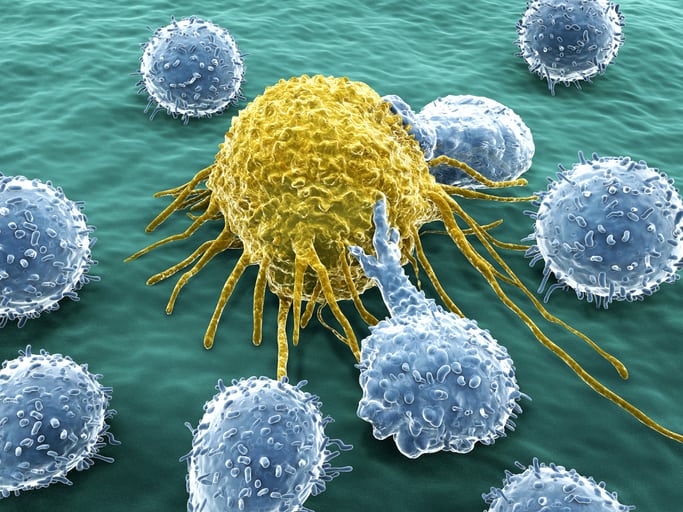It has been previously established that hypoxia leads to tumor development, treatment resistance, and a poor prognosis. Under oxygen deprivation, hypoxia-inducible factors (HIFs) are stimulated to activate the genes necessary for tumor development in a low-oxygen environment. These genes encode regulators of angiogenesis, epithelial-mesenchymal transition, and cellular metabolism. A disulfide isomerase, anterior gradient 2 (AGR2), has been shown to increase hypoxia-inducible factor 1, alpha subunit (HIF-1α) stability in breast cancer. Our goal was to determine if AGR2 affects the level of transcription factor hypoxia-inducible factor 2, alpha subunit (HIF-2α). As a model, we used the clear cell renal cell carcinoma (ccRCC) cell line Caki-1. The cells were transduced with lentiviral vector (Tet-On) encoding AGR2. After induction of AGR2 expression, cells were grown under either hypoxic (0.5% O ) or normoxic (21% O ) conditions. Our data showed that AGR2 upregulated both HIF-1α and HIF-2α expression in Caki-1 cells increasing the expression of HIF-activated genes (glucose transporter 1, phosphoglycerate kinase 1, vascular endothelial growth factor A, and transforming growth factor-alpha) under the hypoxic conditions. Under the normoxic conditions, AGR2 strongly activated CCAAT-enhancer binding protein beta (C/EBPβ). Upregulation of C/EBPβ correlated with increased expression and secretion of the interleukin-6 and interleukin-8, inducing angiogenesis and inflammation in Caki-1 cells. In summary, our studies revealed that AGR2 has essential functions in ccRCC progression through upregulation of C/EBPβ and HIF-2α expressions, which affects cell signaling and metabolism.© 2020 International Union of Biochemistry and Molecular Biology.
Anterior gradient 2 promotes tumorigenesis through upregulation of CCAAT-enhancer binding protein beta and hypoxia-inducible factor-2α and subsequent secretion of interleukin-6, interleukin-8, and vascular endothelial growth factor in the Caki-1 clear cell renal cell carcinoma cell line.


